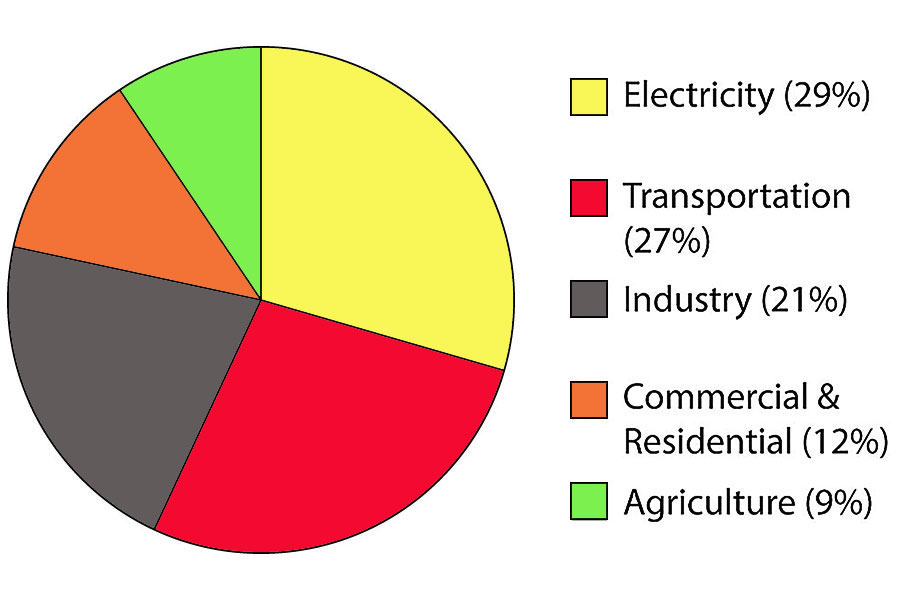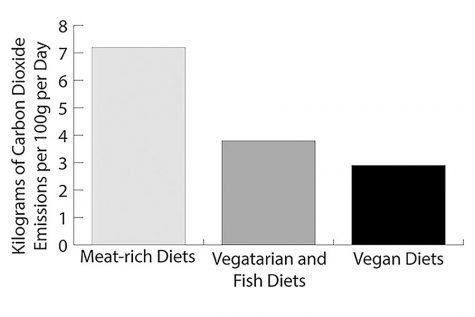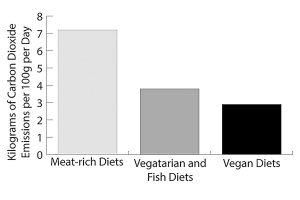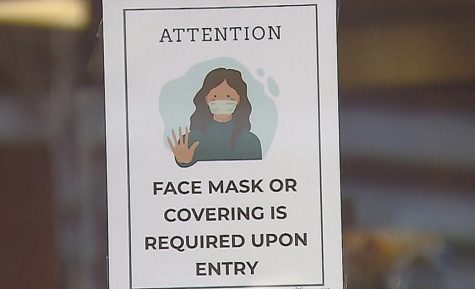Why an animal free diet is unrealistic for some people
According to an article posted by the Environmental Protection Agency in 2015. Graphic: Eli Shimanski
While there are pros and cons to both eating or not eating animal products, a lifestyle with healthy amounts of animal products could be beneficial for people. A huge controversy amongst people is about whether or not we should be living a lifestyle that includes the consumption of animal products in it, or that either cuts down on or completely eliminates all animal product usage. Many arguments from both sides confront environmental, ethical and health issues.
One of the largest issues surrounding the use of animal products is the affect it has on the environment. According to an article by the Environmental Protection Agency (EPA), 29% of greenhouse gas emissions are due to electricity usage, followed closely by 27% of emissions coming from different modes of transportation. Meanwhile only 9% of the greenhouse gas emissions come from agriculture.
While there are many impactors on the environment, there still is the reality of the large impact that the meat industry has on our world. Lamb, beef and cheese are the products that have the largest impact on the environment, followed by pork and salmon. All of those products (with an exception to salmon) are the most environmentally damaging with how much land and pesticides they use.
Author Rachel Carson argues in Silent Spring that pesticides in one ecosystem can greatly influence, organisms in another and leave behind great pesticides for the next level of the food chain, this is referred to as biomagnification.
However, if meat, eggs and dairy products are certified organic, grass feed, and the animals were given humane treatment, the impact on the environment is greatly decreased. There have even been cases where organic, grass fed animals carry a smaller risk of bacterial infection and are more nutritious. While many large chain companies and businesses have unethical feedlots and a very large impact on the environment, smaller and more local businesses are notably better for us and our world.
Sophomore Ellis Nordhougen’s father is the co-owner of Red Table Meat, a local shop that sells meat products in Minneapolis. “He gets his pigs and products from more sustainable local farms and it’s important because it’s better for the environment, it’s better for the animals and it’s better for the people that consume the products,” Nordhougen said.
Another issue that arises is accessibility and price. In order to have a healthy, balanced diet you have to get enough protein, iron and nutrients, along with many other things to stay healthy. While yes, it is possible to have a healthy animal free diet, it can be much harder to find supplements with all the right nutritional needs, especially in food deserts. Food deserts are distinct parts of the country that lack access to fresh foods and produce.
According to the StarTribune, Minnesota is one of the top ten worst States with access to fresh and healthy food in the nation. There are certain urban pockets that have a more wide variety of fresh and healthy food options, but outside of that it can be very hard for people to maintain an animal free diet. “I think that there’s definitely a lot more accessibility to meat and it’s easier to get the protein that you need. There are benefits of having meat because there’s more access to it and I think that’s important,” Nordhougen said.
Not only can maintaining a vegan or vegetarian diet be difficult for people, but another issue that comes up is maintaining personal connections with people. In many communities and friendships a primary factor that people connect over is food. Many social gatherings are held over meals, so having a dietary restriction that is usually by choice, unlike an allergy, can be hard to handle while preparing meals for people. While yes, there are definitely ways you can work around this, it is just another road block for connecting with people. This is just another reason why keeping healthy amounts of animal products in your diet could ultimately be beneficial.
Overall, while yes it is important to monitor how many animal products you are eating and where the products come from, having healthy amounts of meat and dairy in your diet is more realistic based on pricing, accessibility and nutrition. Finally, if you are careful about where the food comes from the impact on our environment can be monitored and reduced.

Eli Shimanski, a senior, is ready as ever for this year, as long as he’s always listening to the album Views by Drake. Our very own visual media editor...


















